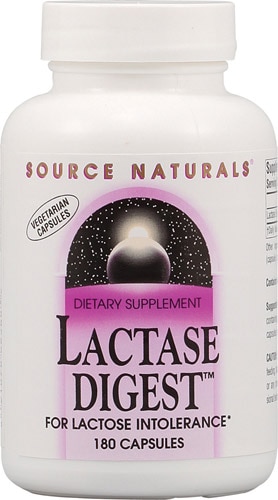Do you scream for ice cream, or do you suffer from ice cream remorse? If you do have trouble digesting dairy, you are not alone. Close to 50 million American adults are lactose intolerant—unable to digest the sugar (lactose) in milk. Certain ethnic and racial populations are more widely affected than others. If you have lactose intolerance, your body makes sure to let you know. The symptoms, which usually begin 30 minutes to two hours after eating or drinking foods that contain lactose, can be uncomfortable: diarrhea, gas, nausea, cramps and bloating.
Causes of lactose intolerance
Lactose intolerance tends to be caused by a deficiency of lactase, an enzyme produced in your small intestine that digests milk and converts milk to glucose. Many people have low levels of lactase but still can digest milk products without problems.
Several factors can predispose you to lactose intolerance. Here are five of the main reasons:
- Aging
Lactose intolerance usually appears in adulthood and rarely in babies and young children. - Ethnicity
Lactose intolerance is most common in people of African, Asian, Hispanic and American Indian descent. - Premature birth
Because the small intestine doesn't develop lactase-producing cells until late in the third trimester, premature babies may have reduced levels of lactase. - Small intestine diseases
Small intestine problems such as bacterial overgrowth, celiac disease and Crohn's disease can cause lactose intolerance. - Cancer treatments
Radiation therapy for abdomen cancer or intestinal complications stemming from chemotherapy can increase the risk of lactose intolerance developing.
How do you know if you have it?
If you are committed to starting with a DIY approach, the best way to assess your lactose intolerance is through seeing how your body feels without any lactose. Completely eliminate milk and milk products from your diet and monitor how you feel in the following weeks. If you notice a big difference, make an appointment with your doctor. If you want to skip the elimination diet and cut right to the chase, there are several diagnostic test options your doctor can administer that will give you same-day results.
Living with lactose intolerance
Once you’ve been tested by a doctor and confirmed that you are lactose intolerant, you will probably have to change the way that you consume dairy (but you might not have to eliminate it altogether). Surprisingly, most people with lactose intolerance can enjoy certain milk products without symptoms.
Here are a few key tips, adapted from the Mayo Clinic guidelines, to get you started.
1. Go small.
Sip small servings of milk—no more than 4 ounces at a time. The smaller the serving, the less distress likely.
2. Drink milk at mealtimes.
Drinking milk with other foods slows the digestive process and may lessen symptoms of lactose intolerance.
3. Opt for full fat.
Some people find that they can tolerate full-fat dairy products, such as whole milk and cheese, more easily than dairy products with no or reduced fat.
4. Experiment. Not all dairy products have the same amount of lactose. Hard cheeses, such as Swiss or cheddar, have small amounts of lactose and don’t tend to provoke symptoms. Cultured milk products, such as yogurt, are also easier to tolerate, because the bacteria used in the culturing process contains enzymes that breaks down lactose.
5. Buy lactose-reduced or lactose-free products.
Most supermarkets stock dairy alternative products in the refrigerated dairy section.
6. Try lactase enzyme tablets or drops.
Over-the-counter tablets or drops containing the lactase enzyme (Dairy Assist, Lactaid, Lactase Digest) are designed to help you digest dairy products, but they don’t work for everyone.




